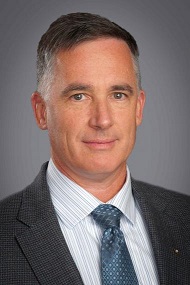.jpg?v=1)
.jpg?v=1)
Due to the ongoing COVID situation and ancillary COVID effects, NFCS has made a decision to move away from an in-person event in 2022. The NFCS community is anxious to hold the event and the NFCS committee feels it is imperative to keep the discussion going in this critical technology area. After an exhaustive review of our options, NFCS has made a decision to convert the upcoming event to a virtual CUI event (Distro D), utilizing WebEx FedRAMP, over our current dates with the full intent to move back to in-person and classified in 2023. There is a possibility the event could shift from four long days to five shorter days to better accommodate this format, so please keep the whole week reserved on your calendar for now. The NFCS Committee which includes leaders from the AF, Army, Navy, MDA, UARCs, and Industry are committed to making this the best virtual NFCS event we can.




The NFCS brings together the Nation’s fire control community to address the needs of the entire kill chain, translate those needs into emerging technology requirements, and identify the crucial challenges in fulfilling those requirements. The NFCS provides a forum to discuss science and technology (S&T) priorities, drive technology toward maximizing return on investment, and report real progress on current investments.
The NFCS is the only all-Service forum for discussing the entire kill chain applicable to the Joint Military Services, as well as their research and development centers and defense industry partners. Technical content includes the presentation, demonstration, discussion, and sharing of advanced concepts required for: force management and pre-mission planning; locating, identifying, targeting, and attacking air, sea, ground, space targets; performing post-attack evaluations, as well as the integration, testing, tactics, and training required to maintain our tactical advantage. The Symposium addresses the application and integration of sensing, information interoperability, command and control, and weapons used for countering difficult targets characterized as concealed, time-critical, urban, deeply buried, or electronic. In recognition of the heightened threat, emphasis will be placed on extending DoD investments to support homeland defense, including opportunities for direct support of CONUS operations. Participants will discuss potential technology barriers, structural design, analysis, application methods, and plans to advance the current state-of-the-art.
NFCS provides managers and planners a global perspective for planning and deciding on strategy and associated investment planning. At the same time, the Symposium enables technical interaction between scientists, project engineers, program managers, and users of fire control technologies. Attendance by researchers at an event with the technical breadth of NFCS has proven vital to meeting the U.S.’s Command, Control, Communications, Computers, Intelligence, Surveillance and Reconnaissance (C4ISR) requirements in support of the warfighter. With continued reduction in budgets, the government has an increasing reliability on cooperative research efforts. The size and focus of the NFCS affords a greater number of productive contacts, cooperative relationships, and understanding of a larger number of external research efforts while providing U.S. researchers with a deeper understanding of the state-of-the-art and the warfighter’s perspective. The net result is the potential reduction in duplication of work completed by academia or industry, as well as the promotion of scientific advances resulting from collaborative efforts that could save DoD valuable time and financial resources while defining innovative solutions to technology challenges.
The NFCS offers a great opportunity to interact with leading system engineers, designers, scientists, and managers collaborating to focus on current warfighter issues related to integrated fire control, including homeland defense, and challenges applicable for all military services, research and development centers and the defense industry.